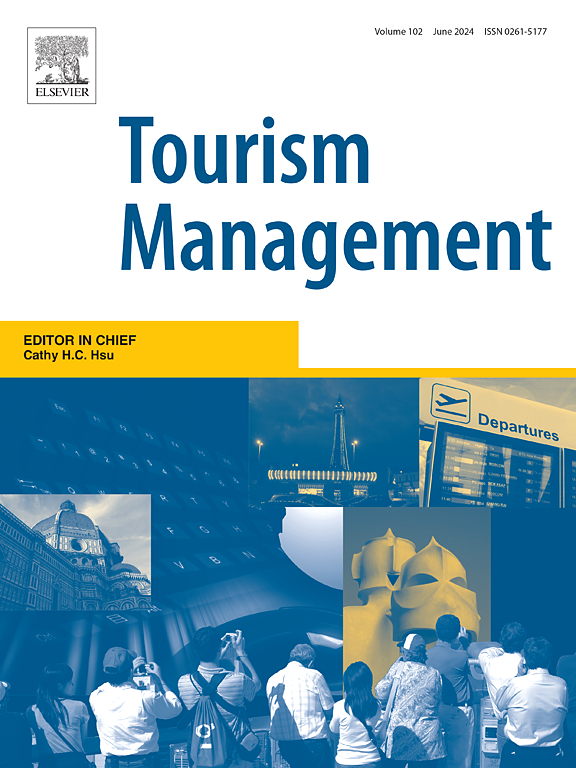旅游村发展中的动态知识实践:活动理论视角
IF 12.4
1区 管理学
Q1 ENVIRONMENTAL STUDIES
引用次数: 0
摘要
本研究探讨了为何旅游村的发展模式往往无法复制成功,尽管文化和地理上的相似性。运用活动理论和知识管理的概念,我们分析了两个相邻的中国村庄,以追踪显性知识流动,并检查中断的隐性和本土知识实践。研究结果表明,在表层知识转移发生的同时,活动系统要素内部的矛盾,特别是土著知识和社区能力的边缘化,阻碍了知识的有效应用。知识流本质上是非线性的,并且高度依赖于上下文。我们开发了一个比较活动系统模型,该模型强调了成功如何更少地依赖于知识转移,而更多地依赖于将本土知识整合到当地旅游发展中。该模型强调了稳定的嵌入式知识结构对可持续成果的重要性。该研究挑战了关于旅游发展可复制性的过于简单化的假设,并为旅游发展知识实践中的文化敏感、具体环境策略提供了见解。本文章由计算机程序翻译,如有差异,请以英文原文为准。
Dynamic knowledge practices in tourism village development: An activity theory perspective
This study investigates why tourism village development models often fail to replicate success despite cultural and geographic similarities. Using activity theory and knowledge management concepts, we analyze two adjacent Chinese villages to trace explicit knowledge flow and examine disrupted tacit and indigenous knowledge practices. Findings show that while surface-level knowledge transfer occurs, contradictions within activity system elements, especially the marginalization of indigenous knowledge and community capacity, hinder effective knowledge application. Knowledge flow is inherently nonlinear and deeply context-dependent. We develop a comparative activity system model that highlights how success hinges less on knowledge transfer and more on the integration of indigenous knowledge into local tourism development. This model underscores the importance of stable, embedded knowledge structures for sustainable outcomes. The study challenges oversimplified assumptions about replicability in tourism development and offers insights for culturally sensitive, context-specific strategies in knowledge practices in tourism development.
求助全文
通过发布文献求助,成功后即可免费获取论文全文。
去求助
来源期刊

Tourism Management
Multiple-
CiteScore
24.10
自引率
7.90%
发文量
190
审稿时长
45 days
期刊介绍:
Tourism Management, the preeminent scholarly journal, concentrates on the comprehensive management aspects, encompassing planning and policy, within the realm of travel and tourism. Adopting an interdisciplinary perspective, the journal delves into international, national, and regional tourism, addressing various management challenges. Its content mirrors this integrative approach, featuring primary research articles, progress in tourism research, case studies, research notes, discussions on current issues, and book reviews. Emphasizing scholarly rigor, all published papers are expected to contribute to theoretical and/or methodological advancements while offering specific insights relevant to tourism management and policy.
 求助内容:
求助内容: 应助结果提醒方式:
应助结果提醒方式:


